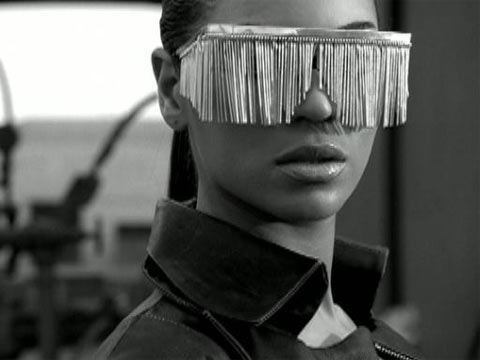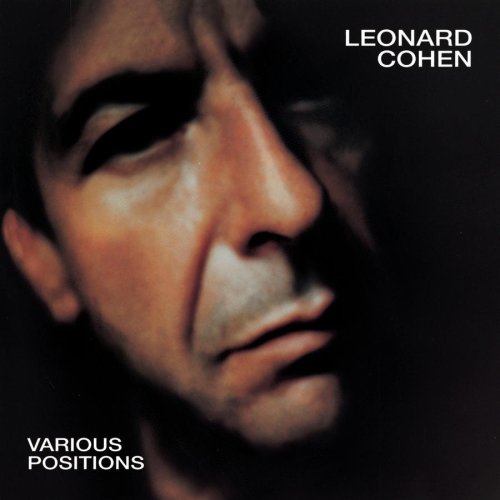
Let’s talk about divas.
Let me start by saying I completely disagree with Beyoncé in her single “
Diva.” In the opening lines of the song, B argues that a diva is “a female version of a hustler.” Not to argue with the owner of the coolest fringe sunglasses I’ve ever seen, but no. A true diva ain’t no hustler, a true diva walks into a room and hell breaks loose – now I know that usually divas are thought of as spitfires, sass masters, and trainwrecks ( a la Miss Winehouse) – but I would argue that setting all that aside, a true diva walks into a room and hell breaks loose because her voice fills the room and takes over. I’m talking a big voice that takes no prisoners, that sits you down, slaps your ‘cross the face and makes you shut up. A voice with personality and warmth, but most of all with intensity and volume (in the physics’ meaning of the word). It helps if the lady with the big voice is a crazy bitch, as my friend has noted
here, but not all hot messes are divas or rather, not all hot messes have a diva voice.
Speaking of B leads me to the pop music scene of today, one in which voices are far less important than sounds, rhythms and catchy phrasing, where Nicki Minaj can sing and Katy Perry can sound less and less like herself (and more and more like an android programmed to sing better than Katy Perry). I read a review in Rolling Stone last November of new albums by Mary J. Blige and Alicia Keys that noted how singles on R&B radio these days often sound like they were written by algorithm so that one song bounces right into the next without any vocal variety. I love Alicia Keys but her most recent album
The Element of Freedom limits the haughty singer’s range to crisp mid-range ballads that rarely crackle, sticking with her sexy phone voice instead of her ability to crank things up. Mary J, the Queen of Hip-Hop Soul, dabbles in Auto-Tune on her album
StrongerWith Each Tear, but ultimately ends with the kind of shiver-inducing soul-meets-R&B joints that make her a treasure. Her song “
Color” from the soundtrack to Precious is a classic. Mary J has got that diva voice, and the ability to move between R&B, soul and hip-hop in a way that keeps her fresh and relevant, but even this diva has had to call on rappers and Auto Tune to keep on the charts.
I can think of plenty of diva voices – Patti, Aretha, Whitney, Mariah, Annie Lennox – but these days the radio doesn’t care for voices that big. Mariah’s most recent hits sound like she’s been studying at the Britney Spears school of singing – cooing, giggling and talk singing her way through enjoyable tracks that lack her signature oomph and ability to hold a note for days and take it for a ride around the block. Whitney’s comeback album and tour has revealed cracks in the famous voice – there’ve been too many articles about disappointed fans and her inability to hold the notes on “I Will Always Love You” for me to not feel bad for her. Her talent has always lain in big ballads and dance numbers that didn’t rely on the flat limited voices that these days dot the pop landscape (Ke$ha, sometimes Gaga, LaRoux – all I like, but all are singing in a range roughly as big as my thumb). I love love love “
Million Dollar Bill” – a brilliant pop confection with Alicia Keys and Swizz Beatz mixing up something classy and current (and mixing up a baby). Whitney may not be quite where she once was on this song, but I feel like I can hear her smiling on this track and that helps.
VH1’s attempt to resuscitate
Divas Live last September was a hot mess that revealed, among other things, the dearth of popular diva voices on the airwaves. Miley Cyrus’s inclusion made me wince in a way similar to watching Taylor Swift eviscerate Stevie Nicks at the Grammys in January. Miley’s voice is mostly husky posturing and any question of her skill as a diva should have been answered by her recent duet with Dolly Parton on “
Jolene.” Say what you will about the owner of Dollywood, she’s got pipes and she blows Miley out of the water. The 2009 Divas Live was heavy on American Idols – Jordin Sparks, Kelly Clarkson and Jennifer Hudson. I love all three, but Jordin always seems like she’s playing at being a pop princess as part of a slumber party game, Kelly does mad well but she’s a rock star for the Adult Contemporary set. J Hud’s where the voice is at. I loved the half of her debut album where she wasn’t buried under cheesy music and the hell that is 90’s slow jams. After all the scuttlebutt around her Oscar and her Grammys, her singles after “Spotlight” didn’t seem to catch fire the way they should have – and am I the only one that finds it embarrassing that the video for “
If This Isn’t Love” feels the need to make J Hud stationary so she can watch another couple dance while she remains alone?
The Brits on the roster were Adele and Leona Lewis. I love – or lurve – Adele and her intimate folkie pop songs but she’s too private, too personal, too twee for me to consider her a diva. Hers is a fragile voice, laced with yearning and nights spent alone by a fire. Even when she does a bigger rave-up, as here on my favorite track “
Tired,” she’s still too close for a diva. She’s not filling the room with the voice, she’s right next to you, she’s right outside the window, she’s at the other end of the phone. God, I love her voice, though.
Which leaves me with Leona, who like J Hud is the product of a reality TV talent show – in the UK – and who scored with “
Bleeding Love” – a Ryan Tedder ballad back before everyone had their stab at his strings and beats brand of enjoyable schmaltz (see B’s “Halo” and Kelly’s “Already Gone

”). Leona’s actually the lady who inspired me to write this post. I wondered what happened after her debut album and the blitz for her second album
Echo which then seemed to vanish in the ether. The album is a knockout though, better in many ways than the first, the 90’s Mariah album that Mimi forgot she made tricked out with some 21st century beats. Leona knows how to be a diva and a dancehall queen and it’s only a pity that she’s not everywhere. I love the whole album but “
Outta My Head” is the standout track – Leona may be a bit cold at times but she’s having fun here, she’s yearning and singing her little heart out against a backdrop of synthesizers and when called for she’ll hold those notes until she’s the last sound standing beating back that army of electronic clicks and whistles. She bends the notes, coos, begs and I promise if you listen to this a few times you’ll have trouble getting it outta your head (I had to, right?).
Which brings me to Xtina – good ol’ Christina Aguilera, the youngest person to make Rolling Stone’s list of the 100 greatest voices, the Dirrrty Mouseketeer who didn’t give a second glance until she tried her hand at being a robot on
Bionic (I have an academic hard-on for cyborgs in music, it’s complicated). The album she turned out is an overstuffed hot mess with good tracks that fail to cohere into a whole – instead Bionic is packed with attempts to make club music, fun feminist anthems with mocking choruses and chamber ballads. At times on this album Christina buries her vocal chops, squishes them, limits them, as if she took to hear the claims that she oversings and decided that the quickest way to the top of the charts was to sound like an actual robot. Still, there are gem

s. I’m partial to “Not Myself Tonight” although I know that makes me a minority but in the valley of this album are three amazing ballads penned by Sia Furler – the whacky Aussie whose recent album
We Are Born is the perfect blend of Motown-style pipes and danceable grooves. Sia is also, however, a master of the intimate acoustic moment and Christina corrals her formidable voice into songs that prove she can sing. “
I Am” is by far the best of these, a track driven by the organic sound of strings and Christina’s rich voice at a little girl hush explaining her foibles to a lover that can see past all of that. It’s lovely to hear Christina without the distractions, without the vocal gymnastics, the dirrrty lyrics or the 21st century synths and PowerTools. She nails it because of that diva voice.
Wanna talk about divas? Start with “I Am” and call me in the morning.


















